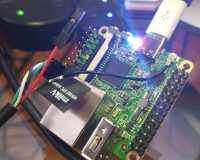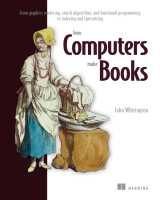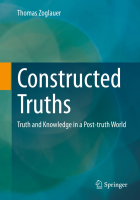 I received a mail today from Google (noreply-findmydevice@google.com) notifying me that they would unconditionally enable the Find my device functionality I have been repeatedly marking as unwanted in my Android phone. The mail goes on to explain this functionality works even when the device is disconnected, by Bluetooth signals (aha, so “turn off Bluetooth” will no longer turn off Bluetooth? Hmmm…) Of course, the mail hand-waves that only I can know the location of my device. «Google cannot see or use it for other ends». First, should we trust this blanket statement? Second, the fact they don’t do it now…...
I received a mail today from Google (noreply-findmydevice@google.com) notifying me that they would unconditionally enable the Find my device functionality I have been repeatedly marking as unwanted in my Android phone. The mail goes on to explain this functionality works even when the device is disconnected, by Bluetooth signals (aha, so “turn off Bluetooth” will no longer turn off Bluetooth? Hmmm…) Of course, the mail hand-waves that only I can know the location of my device. «Google cannot see or use it for other ends». First, should we trust this blanket statement? Second, the fact they don’t do it now…...Gunnar Wolf - Nice grey life - page 5
Showing posts 41 – 50
 I received a mail today from Google (noreply-findmydevice@google.com) notifying me that they would unconditionally enable the Find my device functionality I have been repeatedly marking as unwanted in my Android phone. The mail goes on to explain this functionality works even when the device is disconnected, by Bluetooth signals (aha, so “turn off Bluetooth” will no longer turn off Bluetooth? Hmmm…) Of course, the mail hand-waves that only I can know the location of my device. «Google cannot see or use it for other ends». First, should we trust this blanket statement? Second, the fact they don’t do it now…...
I received a mail today from Google (noreply-findmydevice@google.com) notifying me that they would unconditionally enable the Find my device functionality I have been repeatedly marking as unwanted in my Android phone. The mail goes on to explain this functionality works even when the device is disconnected, by Bluetooth signals (aha, so “turn off Bluetooth” will no longer turn off Bluetooth? Hmmm…) Of course, the mail hand-waves that only I can know the location of my device. «Google cannot see or use it for other ends». First, should we trust this blanket statement? Second, the fact they don’t do it now…... Shortly before coming back from Argentina, I got news of a very interesting set of little machines, the MilkV Duo. The specs looked really interesting and fun to play with, particularly those of the “bigger” model, Milk-V DUO S Some of the highlights: The SG2000 SoC is a Dual-architecture beast. A hardware switch controls whether the CPU is an ARM or a RISC-V. Not only that: It has a second (albeit lesser) RISC-V core that can run independently. They mention this computer can run simultaneously Linux and FreeRTOS! 512MB RAM Sweet form factor (4.2×4.2cm) Peeking around their Web site, it...
Shortly before coming back from Argentina, I got news of a very interesting set of little machines, the MilkV Duo. The specs looked really interesting and fun to play with, particularly those of the “bigger” model, Milk-V DUO S Some of the highlights: The SG2000 SoC is a Dual-architecture beast. A hardware switch controls whether the CPU is an ARM or a RISC-V. Not only that: It has a second (albeit lesser) RISC-V core that can run independently. They mention this computer can run simultaneously Linux and FreeRTOS! 512MB RAM Sweet form factor (4.2×4.2cm) Peeking around their Web site, it... If we look at the age-old process of creating books, how many different areas can a computer help us with? And how can each of them be used to teach computer science (CS) fundamentals to a nontechnical audience? This is the premise of John Whitington’s enticing book and the result is quite amazing. The book immediately drew my attention when looking at the titles available for review. After all, my initiation into computing as a kid was learning the LaTeX typesetting system while my father worked on his first book on scientific language and typography [1]. Whitington picks 11 different...
If we look at the age-old process of creating books, how many different areas can a computer help us with? And how can each of them be used to teach computer science (CS) fundamentals to a nontechnical audience? This is the premise of John Whitington’s enticing book and the result is quite amazing. The book immediately drew my attention when looking at the titles available for review. After all, my initiation into computing as a kid was learning the LaTeX typesetting system while my father worked on his first book on scientific language and typography [1]. Whitington picks 11 different... Imagine you’ve come across a trove of files documenting a serious deed and you feel the need to “blow the whistle.” Or maybe you are an investigative journalist and this whistleblower trusts you and wants to give you said data. Or maybe you are a technical person, trusted by said journalist to help them do things right–not only to help them avoid being exposed while leaking the information, but also to assist them in analyzing the contents of the dataset. This book will be a great aid for all of the above tasks. The author, Micah Lee, is both a...
Imagine you’ve come across a trove of files documenting a serious deed and you feel the need to “blow the whistle.” Or maybe you are an investigative journalist and this whistleblower trusts you and wants to give you said data. Or maybe you are a technical person, trusted by said journalist to help them do things right–not only to help them avoid being exposed while leaking the information, but also to assist them in analyzing the contents of the dataset. This book will be a great aid for all of the above tasks. The author, Micah Lee, is both a... Now that we are back from our six month period in Argentina, we decided to adopt a kitten, to bring more diversity into our lives. Perhaps this little girl will teach us to think outside the box! Yesterday we witnessed a solar eclipse — Mexico City was not in the totality range (we reached ~80%), but it was a great experience to go with the kids. A couple dozen thousand people gathered for a massive picnic in las islas, the main area inside our university campus. Afterwards, we went briefly back home, then crossed the city to fetch the little...
Now that we are back from our six month period in Argentina, we decided to adopt a kitten, to bring more diversity into our lives. Perhaps this little girl will teach us to think outside the box! Yesterday we witnessed a solar eclipse — Mexico City was not in the totality range (we reached ~80%), but it was a great experience to go with the kids. A couple dozen thousand people gathered for a massive picnic in las islas, the main area inside our university campus. Afterwards, we went briefly back home, then crossed the city to fetch the little... Last week we held our promised miniDebConf in Santa Fe City, Santa Fe province, Argentina — just across the river from Paraná, where I have spent almost six beautiful months I will never forget. Around 500 Kilometers North from Buenos Aires, Santa Fe and Paraná are separated by the beautiful and majestic Paraná river, which flows from Brazil, marks the Eastern border of Paraguay, and continues within Argentina as the heart of the litoral region of the country, until it merges with the Uruguay river (you guessed right — the river marking the Eastern border of Argentina, first with Brazil...
Last week we held our promised miniDebConf in Santa Fe City, Santa Fe province, Argentina — just across the river from Paraná, where I have spent almost six beautiful months I will never forget. Around 500 Kilometers North from Buenos Aires, Santa Fe and Paraná are separated by the beautiful and majestic Paraná river, which flows from Brazil, marks the Eastern border of Paraguay, and continues within Argentina as the heart of the litoral region of the country, until it merges with the Uruguay river (you guessed right — the river marking the Eastern border of Argentina, first with Brazil... Many of us grew up used to having some news sources we could implicitly trust, such as well-positioned newspapers and radio or TV news programs. We knew they would only hire responsible journalists rather than risk diluting public trust and losing their brand’s value. However, with the advent of the Internet and social media, we are witnessing what has been termed the “post-truth” phenomenon. The undeniable freedom that horizontal communication has given us automatically brings with it the emergence of filter bubbles and echo chambers, and truth seems to become a group belief. Contrary to my original expectations, the core...
Many of us grew up used to having some news sources we could implicitly trust, such as well-positioned newspapers and radio or TV news programs. We knew they would only hire responsible journalists rather than risk diluting public trust and losing their brand’s value. However, with the advent of the Internet and social media, we are witnessing what has been termed the “post-truth” phenomenon. The undeniable freedom that horizontal communication has given us automatically brings with it the emergence of filter bubbles and echo chambers, and truth seems to become a group belief. Contrary to my original expectations, the core...As software developers, we understand the detailed workings of the different components of our computer systems. And–probably due to how computers were presented since their appearance as “digital brains” in the 1940s–we sometimes believe we can transpose that knowledge to how our biological brains work, be it as learners or as problem solvers. This article aims at making the reader understand several mechanisms related to how learning and problem solving actually work in our brains. It focuses on helping expert developers convey knowledge to new learners, as well as learners who need to get up to speed and “start coding.”...
 I realize it’s a bit late to start publicly organizing this, but… better late than never 😉 I’m happy some Debian people I have directly contacted have already expressed interest. So, lets make this public! For all interested people who are reasonably close to central Argentina, or can be persuaded to come here in a month’s time… You are all welcome! It seems I managed to convince my good friend Martín Bayo (some Debian people will remember him, as he was present in DebConf19 in Curitiba, Brazil) to get some facilities for us to have a nice Debian get-together in...
I realize it’s a bit late to start publicly organizing this, but… better late than never 😉 I’m happy some Debian people I have directly contacted have already expressed interest. So, lets make this public! For all interested people who are reasonably close to central Argentina, or can be persuaded to come here in a month’s time… You are all welcome! It seems I managed to convince my good friend Martín Bayo (some Debian people will remember him, as he was present in DebConf19 in Curitiba, Brazil) to get some facilities for us to have a nice Debian get-together in... Probably a trait of my family’s origins as migrants from East Europe, probably part of the collective trauma of jews throughout the world… or probably because that’s just who I turned out to be, I hold in high regard the preservation of memory of my family’s photos, movies and such items. And it’s a trait shared by many people in my familiar group. Shortly after my grandmother died 24 years ago, my mother did a large, loving work of digitalization and restoration of my grandparent’s photos. Sadly, the higher resolution copies of said photos is lost… but she took the...
Probably a trait of my family’s origins as migrants from East Europe, probably part of the collective trauma of jews throughout the world… or probably because that’s just who I turned out to be, I hold in high regard the preservation of memory of my family’s photos, movies and such items. And it’s a trait shared by many people in my familiar group. Shortly after my grandmother died 24 years ago, my mother did a large, loving work of digitalization and restoration of my grandparent’s photos. Sadly, the higher resolution copies of said photos is lost… but she took the...subscribe via RSS